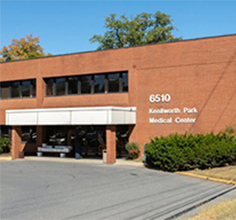
It’s flu season again, and while it might seem routine, it still poses a serious health risk. Southern Maryland Medical Group is here to explain how the flu works, what it can lead to, and how to protect yourself. Whether you’re checking in with one of our primary care doctors for prevention or seeing your heart doctor after a bout of illness, it’s important to know about how this common virus can affect your health. Keep reading so you can stay prepared.
Influenza isn’t a bad cold. It’s a contagious respiratory virus that can knock you down hard and fast. Symptoms like chills, body aches, fever, and fatigue can hit suddenly and last for days or weeks. Underneath those symptoms, your body mounts a full-scale immune response. When you catch the flu, the virus attacks the cells in your lungs, throat, and nose. Inflammation kicks in quickly when your immune system sends white blood cells and inflammatory chemicals to fight off the virus. You feel sore, tired, and congested because of it. The fever is your body trying to make the environment too hot for the virus to thrive. For most healthy adults, the flu is miserable but manageable. Rest, fluids, and time can sometimes do the trick. For people with underlying conditions like heart disease, the stakes are much higher. The stress of infection can worsen preexisting issues. It’s not uncommon for a heart doctor to see complications arise in patients post-flu, and that’s why one round of the flu shouldn’t be taken lightly.
You don’t have to be elderly or immunocompromised to deal with complications from the flu. Many people fall into a moderate risk category but don’t realize it. If you have diabetes, high blood pressure, or asthma, then your body already works harder to stay in balance. A sudden illness like the flu adds to the strain. Obesity, pregnancy, and smoking history can also increase the risk of serious flu-related problems. If you’re over 50, your immune system might not respond to infections the same way it used to. That means longer recovery times and a higher chance of hospitalization. Visiting primary care doctors in Camp Springs, MD can provide an opportunity to ask about chronic conditions, update medications, and get an annual flu shot. All of these activities can help reduce your odyssey of getting the flu or lessen its severity if you do. The flu spreads fast. One sneeze can release tens of thousands of virus particles into the air. So even if you feel confident about your own ability to recover, you could unknowingly pass the virus to someone more vulnerable.
The flu shot is still the single most effective tool we have for preventing influenza. Studies show that vaccinated individuals who do get the flu usually have milder symptoms and shorter illnesses. Every year, the vaccine is reformulated to match the most active strains, so it’s important to get it annually. Last year’s protection won’t help you as well this season. Alongside vaccinations, common-sense hygiene habits go a long way. Wash your hands frequently, especially after being in public places. Avoid touching your face. Cover your mouth when coughing or sneezing, preferably into your elbow. And if you’re sick, stay home. Resting helps your body heal and reduces the chance of infecting others. If you live with or care for someone at higher risk, your vigilance can help keep them safe.
Most flu symptoms can be managed at home, but there are a few red flags you shouldn’t ignore. If you experience difficulty breathing, persistent chest pain, confusion, or dizziness, seek medical attention immediately. These symptoms could indicate pneumonia, heart involvement, or other serious complications. Children under 5, adults over 65, and individuals with chronic conditions should be especially cautious. If symptoms don’t improve after three to five days or worsen suddenly, call your doctor. Antiviral medications like Tamiflu work best when started within the first 48 hours of symptoms, so don’t delay if you’re in a high-risk category.
Recovery from the flu isn’t instant. Fatigue can linger for days, sometimes weeks. Take it seriously. Ease back into routines slowly, drink more water than usual, and get extra sleep. If you have a bad case of the flu, consider scheduling a follow-up appointment. And if you're under the care of a heart doctor, let them know you are sick. Even a mild flu can impact your medications, blood pressure, and overall stability. A quick check-in could prevent larger issues.
Southern Maryland Medical Group is here to help protect your health year-round, not just when you’re sick. We understand the real impact the flu can have, especially if you’re managing multiple health concerns. Call us today to schedule your flu shot or speak with a provider about your symptoms. Don’t wait until the flu catches you off guard.
Southern Maryland Medical Group has 3 convenient locations to provide professional medical care services in the Southern Maryland area. Call or schedule an appointment with one of our locations to get medical care help.

5801 Allentown Road, Suite 400 Camp Spring, MD 20746
Phone: 301-868- 0150
Billing Inquiries: 301-552-1270
Fax: 301-868-0243

7500 Greenway Center, Dr #1200 Greenbelt, MD 20770
Phone: 301-486-7580
Billing Inquiries: 301-552-1270
Fax: 301-486-7581

6510 Kenilworth Ave, Ste 1400, Riverdale MD 20737
Phone: 301-618-0771
Billing Inquiries: 301-552-1270
Fax: 301-618-0772